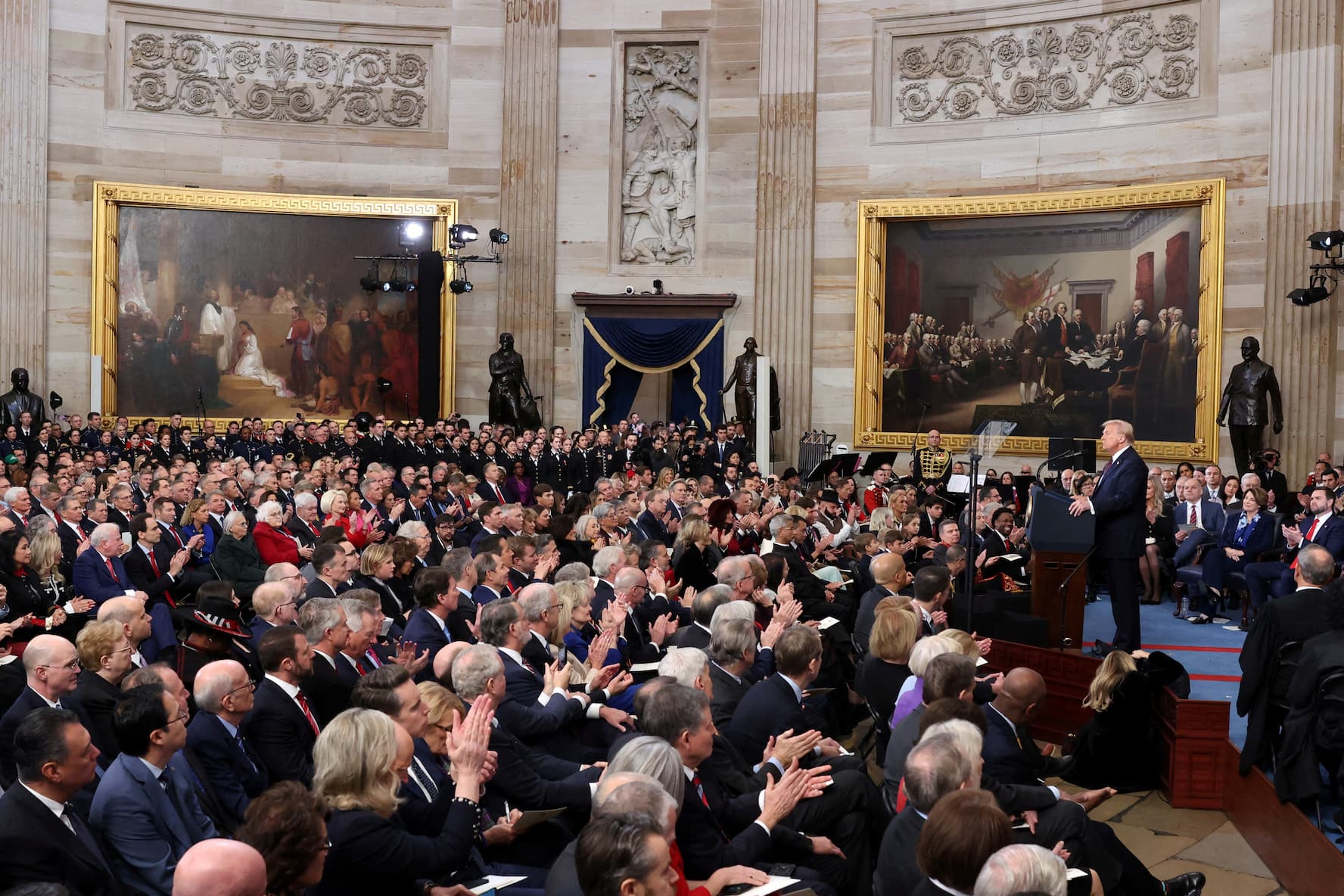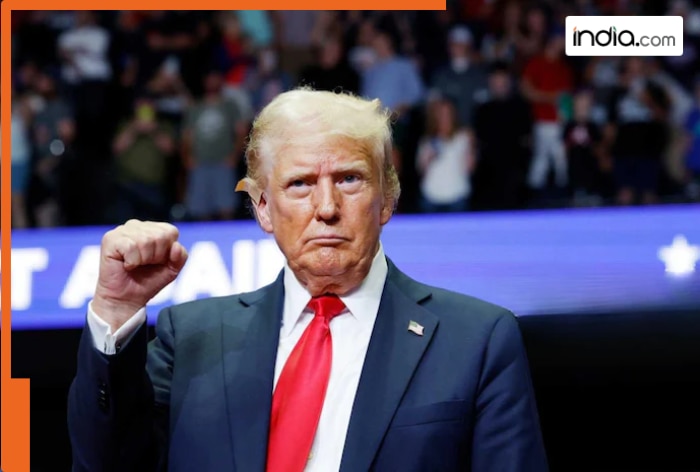



On January 20, 2025, Donald Trump delivered his second inaugural address, marking a pivotal moment for his administration and the Republican Party. In his speech, Trump emphasized the need for a broadening Republican coalition while outlining a series of aggressive immigration policies. He announced plans to declare a national emergency at the southern border, reinstate the 'Remain in Mexico' policy, end 'catch and release,' and send troops to the border. Additionally, he proposed designating drug cartels as foreign terrorist organizations [3ace4d19].
Trump's address also signaled a cultural shift, as he advocated for the recognition of only two genders and called for the elimination of Diversity, Equity, and Inclusion (DEI) programs. He framed his electoral victory as a divine intervention, claiming to have been saved by God to save the nation [3ace4d19]. Notably, the speech lacked substantial focus on economic plans or inflation, instead prioritizing immigration issues and cultural conflicts [3ace4d19].
In a symbolic gesture, Trump proposed renaming the Gulf of Mexico to 'the Gulf of America' and restoring the name of Mount Denali back to Mount McKinley, reflecting his administration's emphasis on national identity [3ace4d19]. However, analysts noted that his hardline stances on immigration and cultural issues could alienate swing voters, raising concerns about their potential impact on upcoming elections [3ace4d19].
In the context of economic policy, Trump's inaugural address emphasized U.S. sovereignty, indicating a shift towards a more isolationist stance. He claimed that the U.S. would act independently, moving away from its traditional role of moral leadership on the global stage [c801abbc]. Concerns have been raised about the implications of Trump's tariff policies, which are expected to burden American consumers rather than foreign entities. The potential for inflation due to loose fiscal policy and deregulation has also been highlighted, alongside warnings of a possible financial crisis and stock market collapse [c801abbc].
The Congressional Budget Office projects a fiscal deficit of 6.2% of GDP and public debt reaching 100%, raising questions about the sustainability of Trump's proposed massive spending cuts to close the deficit gap [c801abbc]. As Trump begins his second term, he is expected to implement policies that align closely with the themes presented in his inaugural address, including aggressive tax cuts, higher tariffs, and a focus on mass deportation, which he has declared a national emergency [662f3ee4].
In a related development, Trump's policies are anticipated to escalate trade tensions, particularly with China. He announced an end to the Green New Deal and declared a national energy emergency, which could disrupt global supply chains and increase inflation due to higher tariffs imposed on several countries, including Canada, Mexico, and China [54056070]. Chinese Vice Premier Ding Xuexiang criticized such protectionist measures at the World Economic Forum, advocating for a win-win approach to trade, while Xi Jinping emphasized the importance of stable China-U.S. relations in a call with Trump [54056070].
The intersection of these ambitious proposals and the responses they elicit will shape the upcoming election cycle and the future of U.S. policy, with warnings that Trump's approach may lead to anti-globalization and isolationism, stressing the need for collaboration to achieve mutual prosperity [54056070].